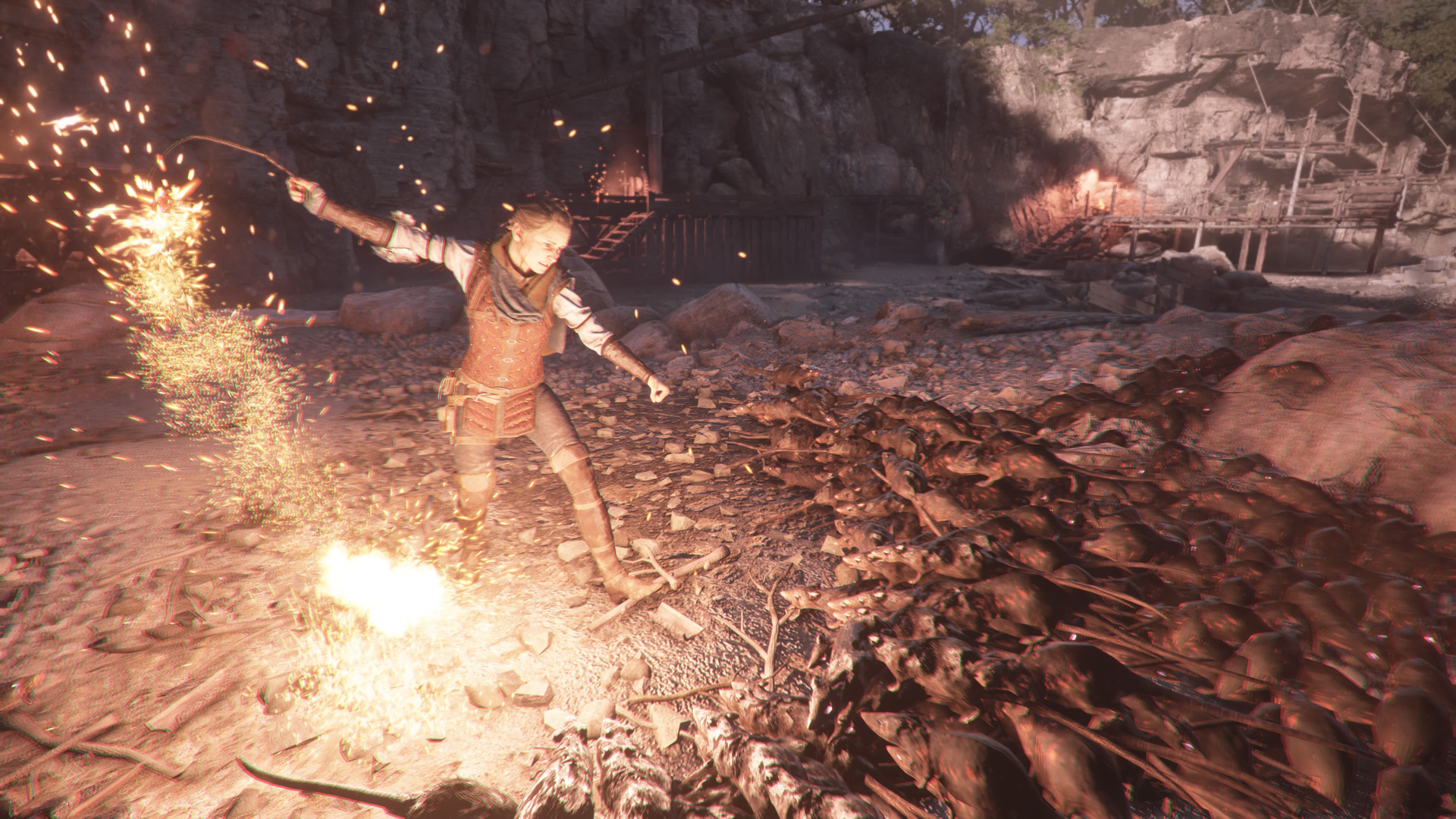GamesRadar+ Verdict
A Plague Tale: Requiem doesn't drastically alter the foundation set by Innocence, but by iterating on its strengths as a character-driven fable within an oft-ignored historical setting, Asobi tells yet another tale to remember.
Pros
- +
Gorgeous presentation of a rarely explored setting
- +
Rat hordes remain visually and mechanically impressive
- +
Multi-layered stealth sandboxes
Cons
- -
Characters don't always speak or behave convincingly
- -
Clunky combat can undermine encounters
Why you can trust GamesRadar+
The stench of death hangs heavy in A Plague Tale: Requiem. A view without a corpse is a rare luxury across its 18-hour campaign, and even then, such reprieves are usually cut short by rats, mercenaries, cultists, or some other horror out for your head.
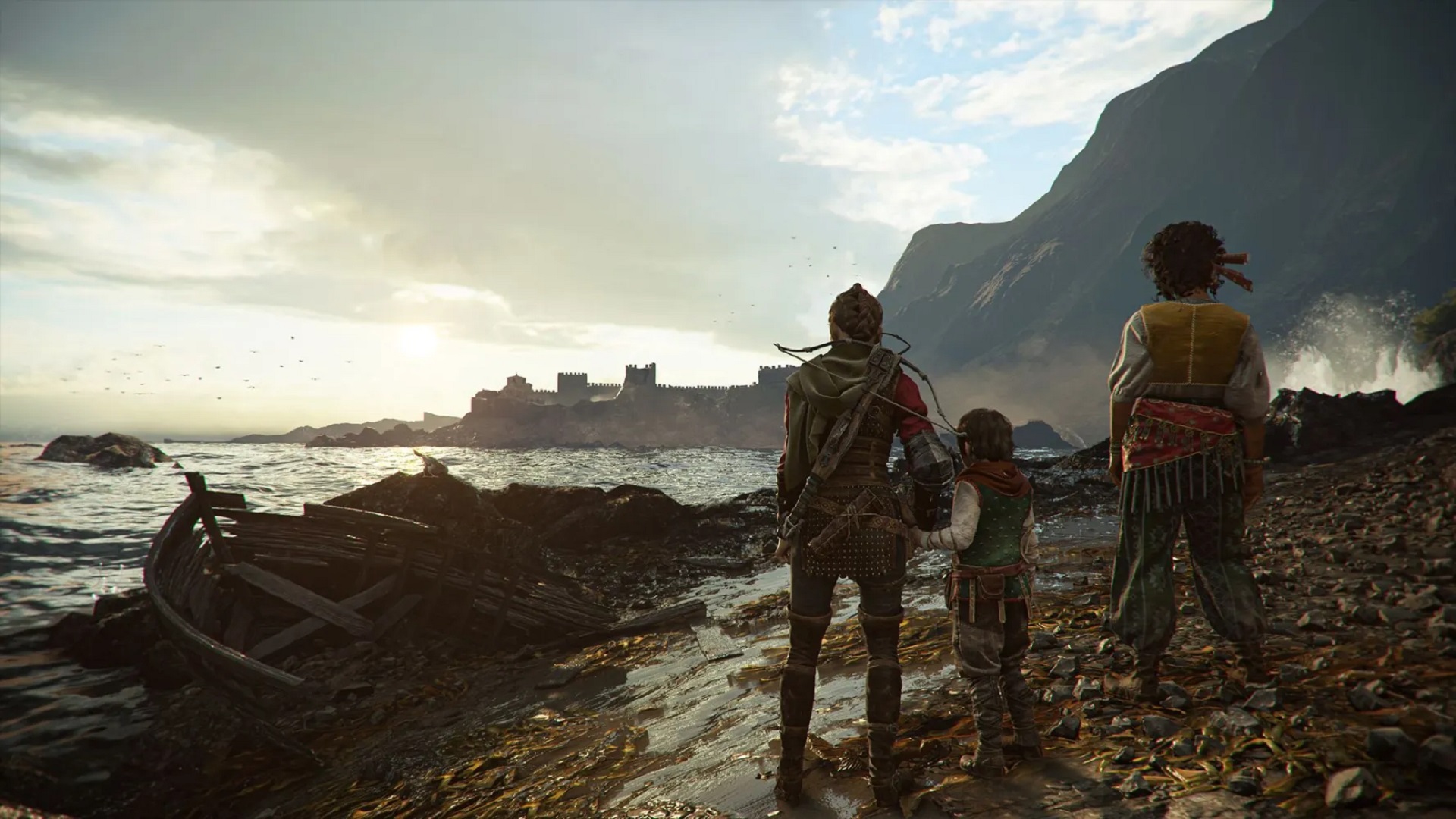
Release date: October 18, 2022
Platform(s): PS5, Xbox Series X, PC
Developer: Asobi Studio
Publisher: Focus Entertainment
This won't come as a surprise to those who played Asobi Studio's 2019 precursor, A Plague Tale: Innocence, which itself offered an equally harrowing riches-to-rags descent into the belly of war and suffering amidst a backdrop of 14th century France. Thankfully, that narrative-driven adventure had a beating heart in the form of its two central characters, Amicia and Hugo de Rune, who together offered a vestige of warmth and humanity to anchor us into an otherwise grisly world.
The characters remain the life and soul of A Plague Tale: Requiem, though this time their relationships are more complicated. Both Amicia and Hugo bear different kinds of battle scars from their shared trauma (the game picks up just six months on from the end of the first), and while their journey to find a new home offers some respite from the horror of the world around them, it's not long before Hugo's sickness flares up once again, bringing more trouble with it.
Family matters
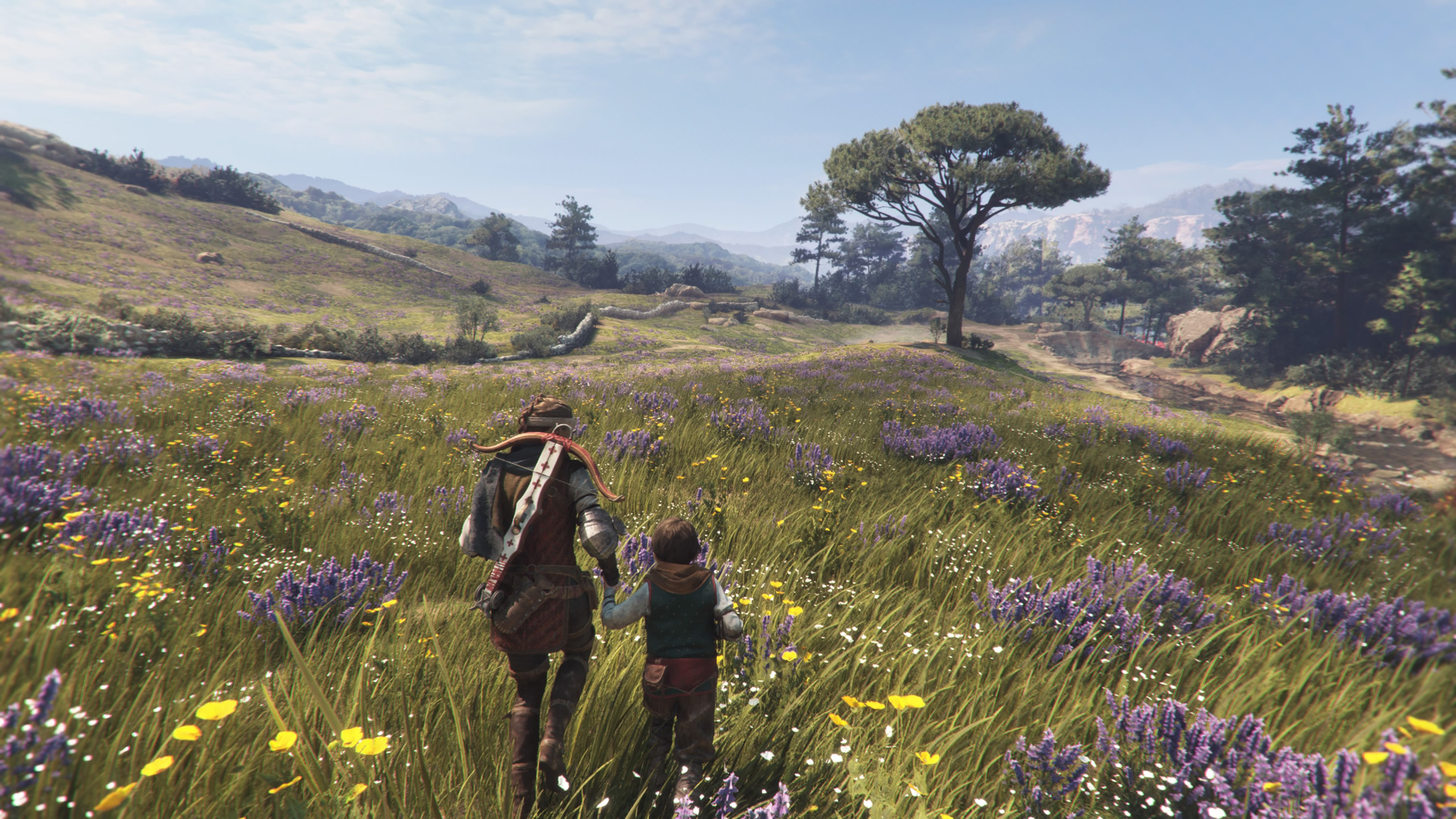
If A Plague Tale: Innocence drew heavily from the themes of The Last of Us: Part 1 in its storytelling, weaving a narrative about two familial characters who must learn to depend on one another throughout horrifying circumstances, Requiem has its equivalent echoes in Naughty Dog's sequel, asking how a teenage girl might be affected by her growing proclivity for violence, and the body count piling up in her wake. Hugo's story is still an important part of the overall narrative, but a good chunk of Requiem takes place without him at Amicia's side, allowing Asobi to spend more time delving into the troubled psyche of the elder sibling – and how it affects her interactions with friends, family, and enemies alike.
This character study isn't always handled as delicately as it ought to be, however, with Amicia often yoyo-ing between enraged bloodlust and tortured anguish with a frequency and intensity that doesn't quite hold up as a convincing narrative arc. It all feels a little rushed, especially as Amicia's struggle is suddenly sidelined when a second-act shift reunites the De Runes back together, and the story locks its focus on the pair's search for a cure to Hugo's sickness.
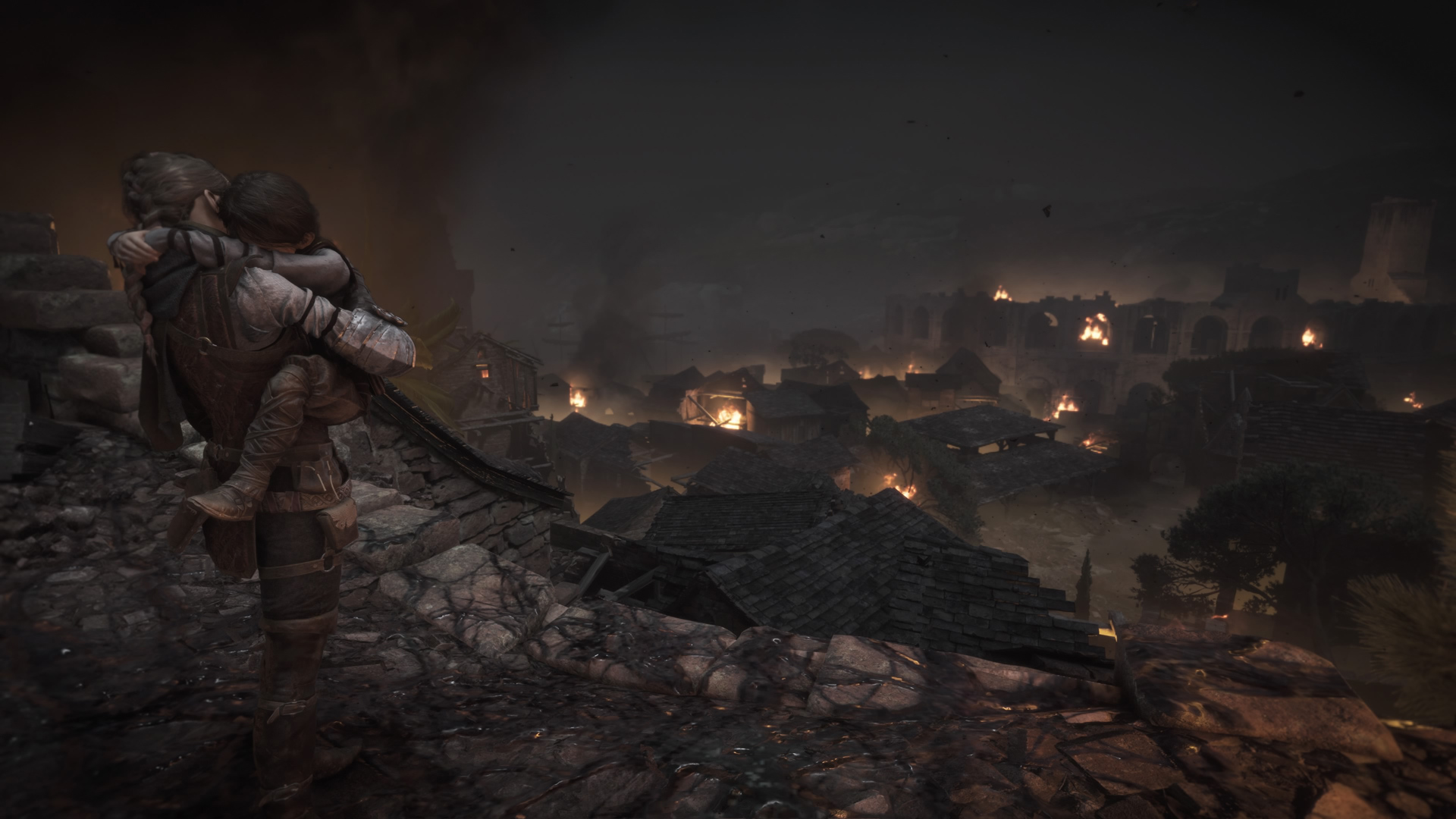
Their hunt for a mysterious island promising such a cure does, at least, maintain a snappy tempo, balancing Plague Tale's darker, bloodier scenes with pockets of gorgeously realized virtual tourism, in which Amicia and Hugo get to appreciate the sights and sounds of medieval France with a childlike wonder. It's true that Hugo's wide-eyed mawkishness can sometimes come across as more annoying than endearing, partly as a victim of the cringiest lines in Requiem's so-so dialogue, but then again, what five year old doesn't start to get annoying after spending extended time in their company?
Requiem's story certainly has its fair share of growing pains, then, but the earnestness with which Asobi Studio colors its characters, albeit with a big brush, is ultimately difficult not to be charmed by. Once the final act kicks into gear, and some of the bigger revelations raise the stakes, you'll find yourself completely invested in where Requiem is headed, and the implications it might leave for the series' future.
Weekly digests, tales from the communities you love, and more
Rats and all
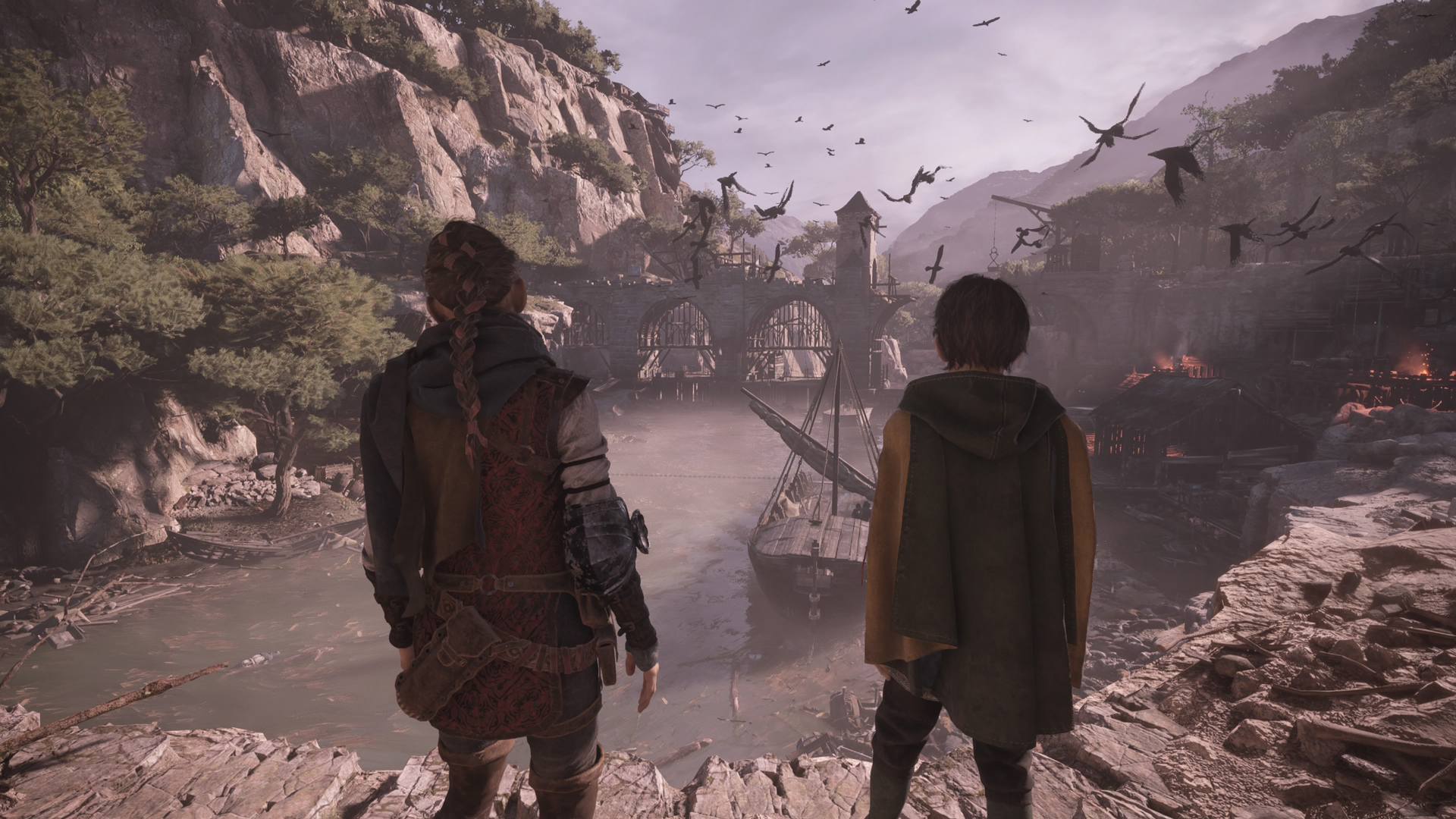
Similarly, it also takes a little bit of time before Requiem comes into its own as a more ambitious stealth game than its predecessor, as Amicia gradually discovers new ways of distracting or dispatching the many human and rodent enemies that cross her path. The big new addition to the toolbox is a crossbow, which allows Amicia to take out helmeted enemies quickly and quietly. Arrows are scarce, however, so don't expect to be relying on it as much as the returning slingshot, whose hyper-sensitive targeting system can still be a tad frustrating to use, particularly when speed and precision is tantamount to staying alive.
Hugo's abilities as the carrier of the Macula curse have also become more sophisticated, allowing him to sense enemies from afar, and even take control of entire hordes of rats capable of devouring several foes in succession. This, in addition to new alchemical ingredients such as tar, alongside specific abilities offered by characters who join you along the journey, broaden the scope of Plague Tale's stealth action significantly, allowing for more experimental, strategic approaches to encounters.
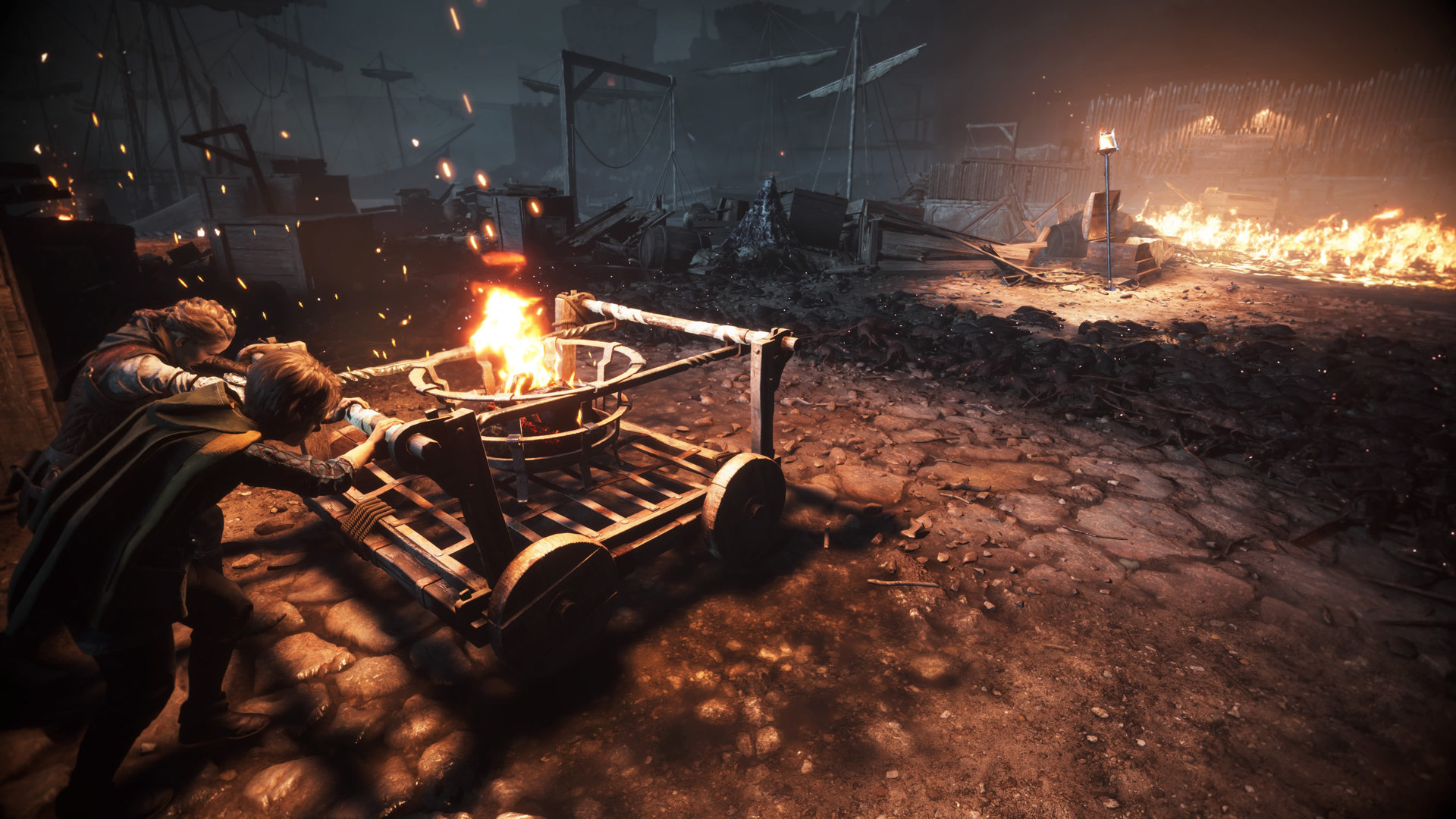
"Requiem's delicious vistas and atmospheric environments stand toe-to-toe with the visual might of many of its contemporaries"
This widened ambition is equally reflected in Requiem's approach to character progression, as well, which is divided into two distinct lanes. The first, relating to Amicia's tools, can be upgraded at workbenches via resources gathered throughout the environment. The second, Skills, is instead linked to playstyle. Spend more time circumventing enemies stealthily, for instance, and you'll be able to progress through Amicia's Prudence skill tree, which unlocks more covert abilities. Find yourself in open combat more often, on the other hand, and you'll instead level up the Aggressive skill tree, offering more options for armed conflict.
It's a system that rewards a player's behavior, rather than giving them the agency to pursue their preferred progression path manually; this may sound like a confusing design decision, but it quickly textures gameplay with an additional layer of strategy. With combat spaces much more open than Innocence's mostly interior environments – offering plenty of paths for different styles of engagement – Requiem asks players to think carefully and tactically about how they want to proceed through each scenario, and consider the kind of warrior that they want their Amicia to evolve into.
Requiem's stealth systems present a significant improvement over those found in Innocence, then, but this broadened scope also reveals the constraints of Requiem's AI and mechanics, which aren't quite as smooth or smart as you'd hope for. These holdovers from the first game haven't quite caught up with the rest of the sequel's evolutions, and the result is that it's not always necessarily your fault if you get caught. While these moments don't occur frequently enough to completely ruin Requiem's encounters, their limitations remain one of the few things that continue to hold Plague Tale back as a truly exceptional stealth experience.
Tour de France
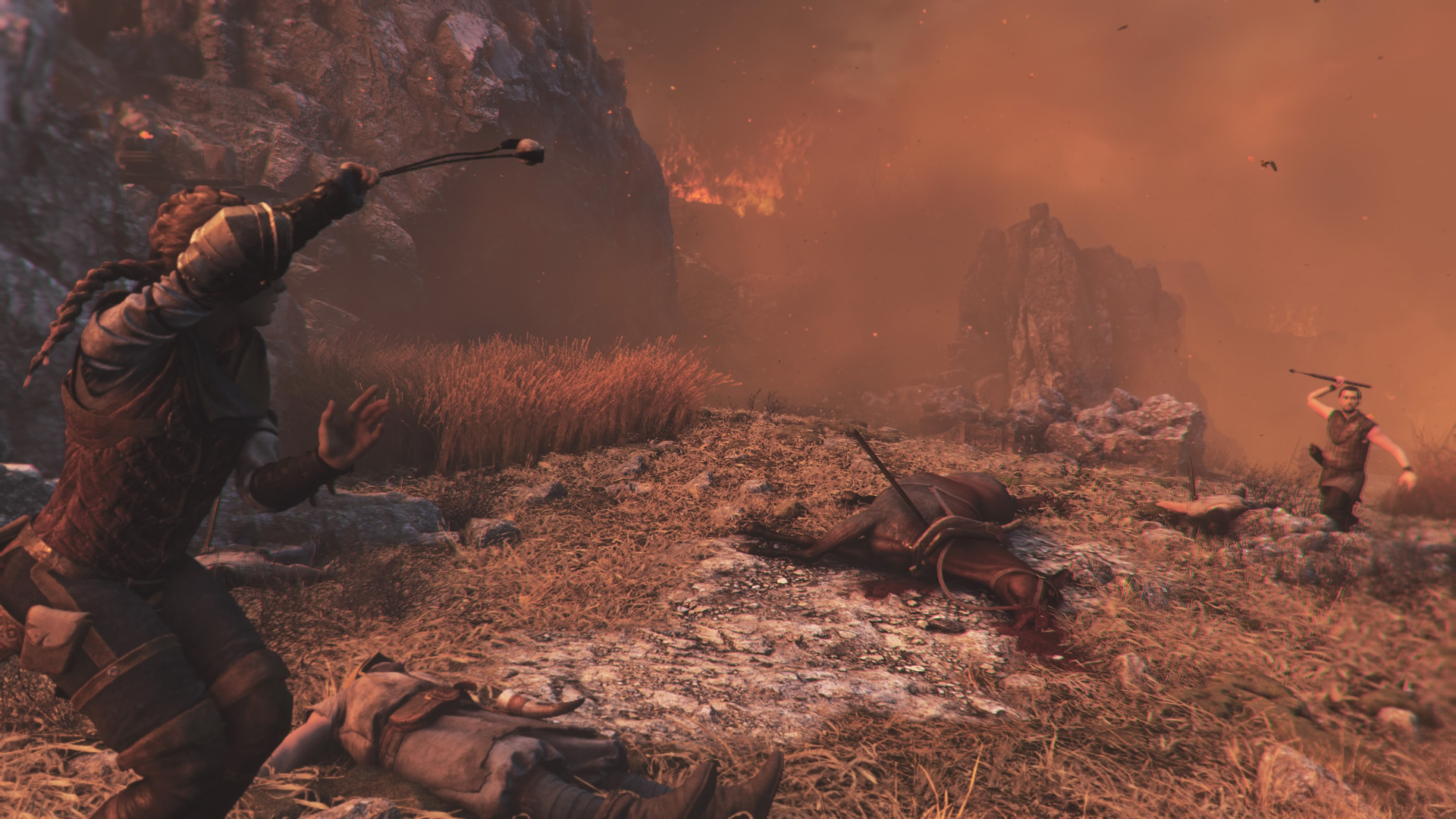
From high-rise shanty towns built within crumbling Roman coliseums, to drizzly coastlines hiding thieves' dens and rat nests, France once again proves to be a winning setting for Asobi, which gets to show off its native country's beauty via the impressive power of its proprietary engine, all of which is complemented perfectly by Olivier Deriviere's striking score. There's the odd blind spot (facial animations can be stilted, and photo mode captures images that are somehow blurrier than the real thing), but at a macro level, Requiem's delicious vistas and atmospheric environments stand toe-to-toe with the visual might of many of its contemporaries, including those made by much larger teams with far bigger budgets.
This sense of scale is especially true when A Plague Tale's infamous rat hordes show up, 300,000 of whom can now feature in the playspace at once thanks to Asobi's wise decision to focus on new-gen hardware. When the rodents plume forth from the ground in unholy geysers of whiskers and fur, or barrage through walls with cataclysmic tremors and gnashing teeth, they're always an exciting audio-visual showcase to admire.
As with Innocence, the rats add another dimension of environmental gameplay that enriches both puzzles and stealth encounters, too, as Amicia uses light and other tactics to navigate past them, while also damning others to death by a thousand bites when enveloping them in darkness. In short, the novelty of Plague Tale's rats is yet to wear thin, with Asobi continually finding new ways to integrate them into Requiem's story, combat, and environmental design.
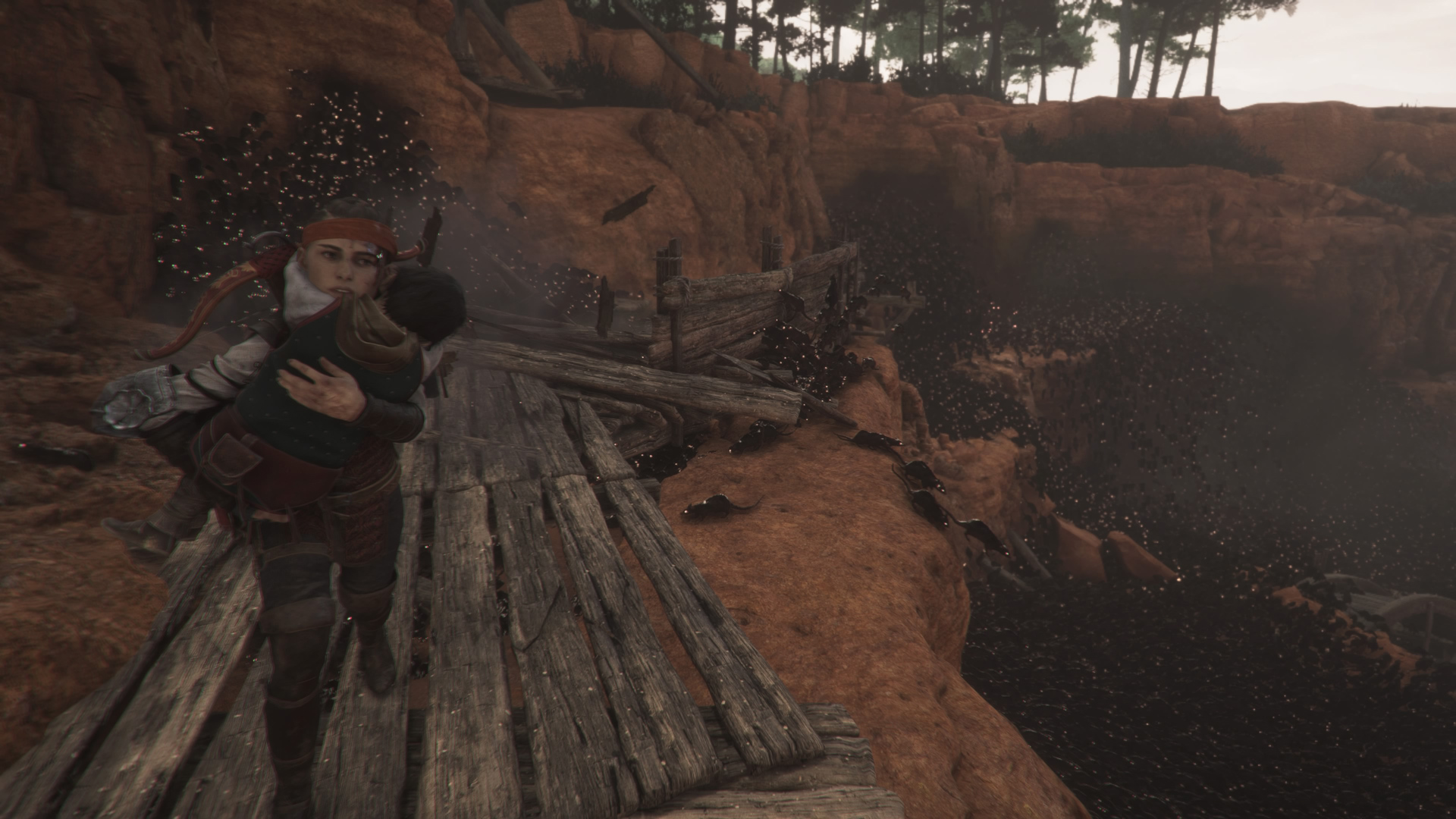
I found myself enjoying their presence so much, in fact, that during an extended sequence in which the rats were nowhere to be seen, I even started to miss the furry fiends. Their sudden return, spilling into view with ferocious abandon, thus made for an even more delightfully gratifying sight to behold, even if Amicia herself wasn't exactly as pleased to see them as I was.
Thankfully, even without its streams of four-legged horrors pouring across every inch of the screen, A Plague Tale: Requiem is never less than an engrossing slice of historical escapism. While I would have liked to see a greater level of sophistication in the same areas of writing and gameplay that also hampered Innocence back in 2019, Asobi's sequel brings worthy iterations to an already fascinating template, and in doing so, treats us to another endearing AA single-player adventure in a market otherwise all too bereft of them.
A Plague Tale: Requiem was reviewed on PS5, with a code supplied by the publisher.
More info
| Genre | Stealth |

Alex is a former Features Writer at GamesRadar+, which once made him responsible for gracing the internet with as many of my words as possible, including reviews, previews, interviews, and more. Lucky internet!
